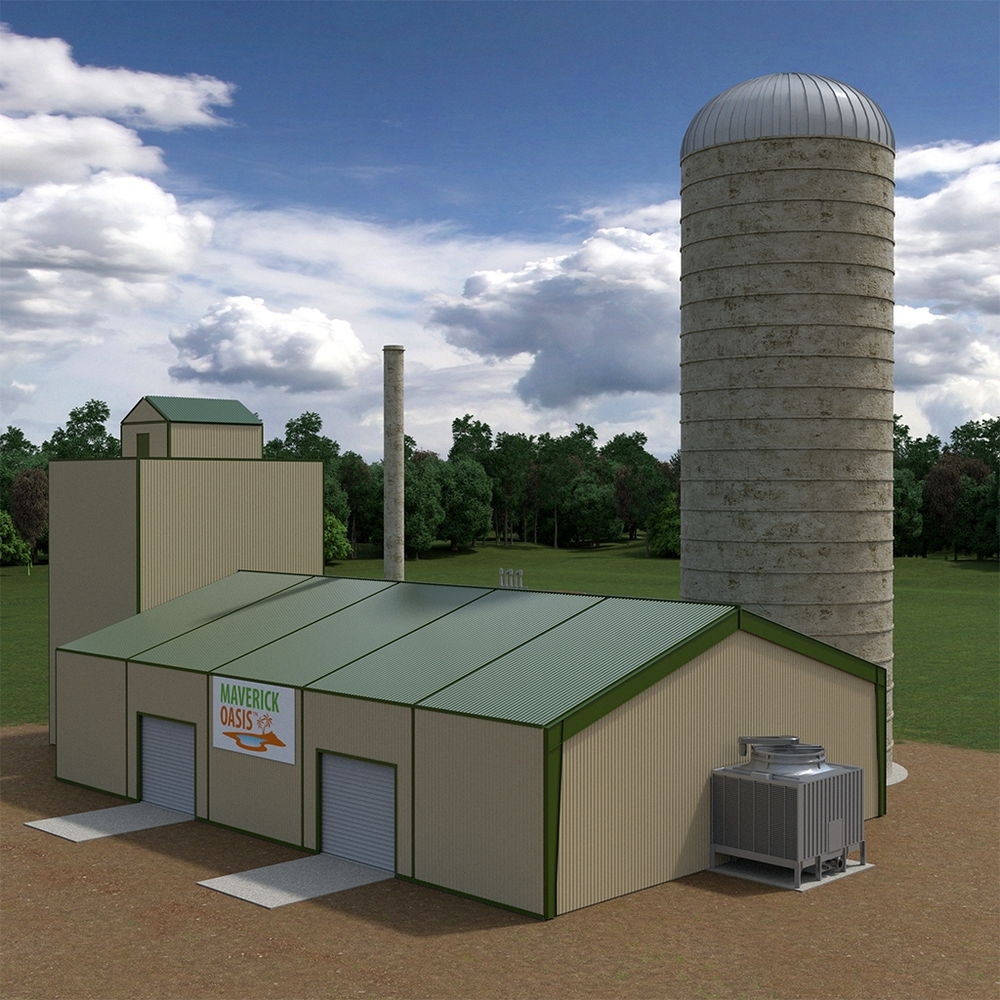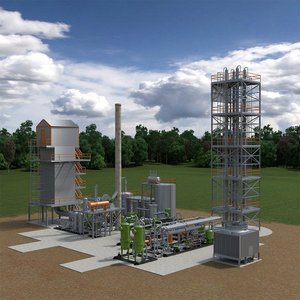Maverick Synfuels introduces modular methane-to-methanol system







Maverick Synfuels
September 25, 2014
BY Katie Fletcher
Maverick Synfuels recently announced the development of its Maverick Oasis system for methanol production. The company says the system provides producers with another way to monetize biogas reserves and natural gas. The Maverick Oasis system is a factory-built, small-scale, modular gas-to-liquids (GTL) methanol production plant with production ranging from 3,000 to 10,000 gallons per day of methanol that meets ASTM D1152 specifications.
“There are a number of advantages to producing methanol,” said Sam Yenne, CEO of Maverick Synfuels. “First, the economic return without government subsidies or incentives is better than electricity or compressed natural gas.”
Another advantage Maverick mentions is attributed to the modularity of the model. The transportable methanol facilities can be co-located at the methane source, even where there are not pipelines or other supporting infrastructure requirements. A third advantage the company references is the larger customer base for methanol than electricity or natural gas. This provides many more off-take opportunities, Yenne said.
On the environmental side, the amount of greenhouse gas emitted compared to electricity or production of pipeline quality is dramatically reduced, according to Yenne. “When producing methanol from biogas some of the CO2 is also converted into methanol; thus, in addition to methane destruction, some of the CO2 is also sequestered,” Yenne said.
Advertisement
Advertisement
The conversion of methane gas to liquid methanol is one component of Maverick’s “spoke and hub” production strategy. The small-scale, modular plants that produce methanol are the spokes. The methanol produced at each spoke can then be transported to the hub facility where it is converted to other higher value products. “The spoke plants provide a mechanism for Maverick to access small pockets of feedstock that are otherwise not available simply because the feedstock cannot be economically transported very far,” Yenne said. “The hub facilities allow us to achieve some economy of scale and be more efficient with capital that is required to convert methanol to other products.”
The company designed the GTL plants or “spokes” with cost and efficiency in mind. “Small-scale, modular plants allow us to reduce capital requirements and at the same time incorporate process improvements that drive down operational costs,” Yenne said.
The combination of these two components make the overall concept cost competitive, but methanol production requires a higher up-front capital cost. “We are delivering a turn-key solution for each project; thus, the price will vary a bit depending upon the exact feedstock and the site improvement requirements,” he said. “In general, the modular plants will cost in the 7 to low 8 digit range depending on the nameplate capacity.”
According to Yenne, the basic process of converting methane to methanol is used every day at a very large scale. The challenge for Maverick was to design small-scale equipment in combination with a business strategy that would produce methanol at a competitive price.
The company worked to scale down the known large-scale processes for around four years before introducing the Maverick Oasis system. The GTL plants have currently not been installed anywhere other than the company’s operating demonstration facility in Denver, Colorado. However, the company says a lot of interest in the project followed the announcement of the partnership with Process Plant and Equipment last spring, and projects are in the works with the hopes of the first set of projects being announced over the next couple of months.
Advertisement
Advertisement
Related Stories
The U.S. Department of Energy Bioenergy Technologies Office (BETO) announced up to $23 million in funding to support research and development (R&D) of domestic chemicals and fuels from biomass and waste resources.
The U.S. DOE has announced its intent to issue funding to support high-impact research and development (R&D) projects in two priority areas: sustainable propane and renewable chemicals and algal system cultivation and preprocessing.
Sens. Sherrod Brown, D-Ohio, and Pete Ricketts, R-Neb., in August introduced the Renewable Chemicals Act, a bill that aims to create a tax credit to support the production of biobased chemicals.
The Chemical Catalysis for Bioenergy Consortium, a consortium of the U.S. DOE’s Bioenergy Technologies Office, has launched an effort that aims to gather community input on the development of new biomass processing facilities.
USDA on March 8 celebrated the second annual National Biobased Products Day, a celebration to raise public awareness of biobased products, their benefits and their contributions to the U.S. economy and rural communities.
Upcoming Events










